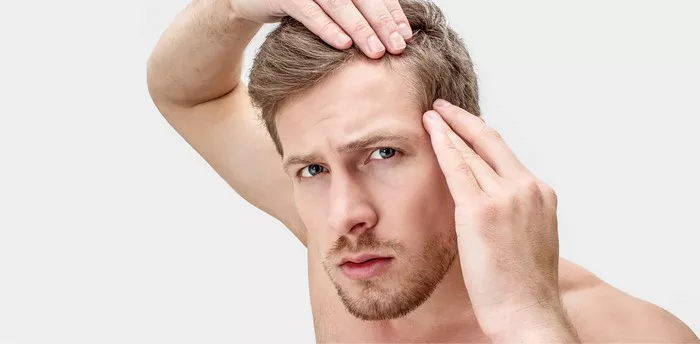In today’s fast-paced world, hair loss has become a common concern for many. While there are various factors that contribute to hair loss, one significant cause is stress. It’s crucial to understand the connection between stress and hair loss and how to identify if your hair loss is stress-related. In this article, we will explore this topic in detail, providing you with the information you need to determine if stress is the culprit behind your hair loss.
The Link Between Stress and Hair Loss
Stress is a part of our daily lives, but excessive and chronic stress can wreak havoc on our bodies, including our hair. To comprehend this connection better, let’s break it down into key points:
1. The Role of Hormones in Hair Loss
When you experience stress, your body releases a hormone called cortisol. An elevated level of cortisol can negatively impact hair follicles, leading to hair thinning and loss.
2. Telogen Effluvium
One of the most common stress-related hair loss conditions is Telogen Effluvium. This condition disrupts the hair growth cycle, causing more hair to enter the resting (telogen) phase and eventually fall out.
Recognizing Stress-Induced Hair Loss
Identifying the cause of your hair loss is the first step toward finding a solution. Here’s how you can determine if your hair loss is due to stress:
1. Assess Your Stress Levels
Take a moment to evaluate your stress levels. Chronic stress from work, personal issues, or other sources can trigger hair loss. If you’ve been experiencing prolonged periods of stress, it may be a contributing factor.
2. Notice the Timing
Stress-related hair loss often occurs a few months after a stressful event. If you’ve been through a particularly taxing period and are now noticing increased hair shedding, it could be related to stress.
3. Consult a Professional
If you’re uncertain about the cause of your hair loss, it’s advisable to consult a healthcare professional or dermatologist. They can conduct tests and provide expert guidance to pinpoint the exact cause.
Strategies to Manage Stress-Induced Hair Loss
Addressing the stress that’s causing your hair loss is essential. Here are some strategies to help you manage stress effectively:
1. Stress Reduction Techniques
Incorporate stress reduction techniques into your daily routine. These can include meditation, deep breathing exercises, yoga, or mindfulness practices to help lower cortisol levels.
2. A Balanced Diet
A diet rich in essential nutrients, such as biotin, zinc, and vitamins, can promote healthy hair growth and combat the effects of stress on your hair.
3. Hair Care Routine
Gentle hair care is crucial when you’re experiencing stress-related hair loss. Avoid excessive heat, tight hairstyles, and harsh chemicals that can further damage your hair.
See Also: Can Yoga Combat Hair Loss: Things You Need To Know
Treatment Options for Stress-Induced Hair Loss
If you’ve determined that your hair loss is indeed due to stress, there are various treatment options available to help you regain your luscious locks:
1. Topical Medications
Minoxidil, a topical medication, is often recommended to stimulate hair regrowth in cases of stress-induced hair loss.
2. Prescription Medications
Some individuals may benefit from prescription medications like finasteride, which can be prescribed by a healthcare professional.
3. Platelet-Rich Plasma (PRP) Therapy
PRP therapy involves drawing your blood, processing it to concentrate the platelets, and then injecting it into your scalp. This can stimulate hair follicles and encourage hair regrowth.
Maintaining a Healthy Lifestyle
While addressing stress-induced hair loss is essential, it’s equally important to maintain an overall healthy lifestyle:
1. Regular Exercise
Exercise can help reduce stress and improve blood circulation to the scalp, promoting healthier hair growth.
2. Ample Rest and Sleep
Adequate sleep is crucial for overall well-being, and it can significantly impact your hair health.
3. Stay Hydrated
Proper hydration ensures that your hair remains moisturized and less prone to breakage.
Seeking Professional Guidance
If you suspect your hair loss is due to stress, don’t hesitate to seek professional help. A dermatologist or hair specialist can provide you with personalized advice and treatment options tailored to your specific needs.
In conclusion
Understanding the relationship between stress and hair loss is the first step toward addressing this common issue. By recognizing the signs, managing stress effectively, and exploring suitable treatment options, you can take control of your hair health and restore your confidence. Remember, you don’t have to face stress-induced hair loss alone – professional guidance and a commitment to a healthy lifestyle can make all the difference.


